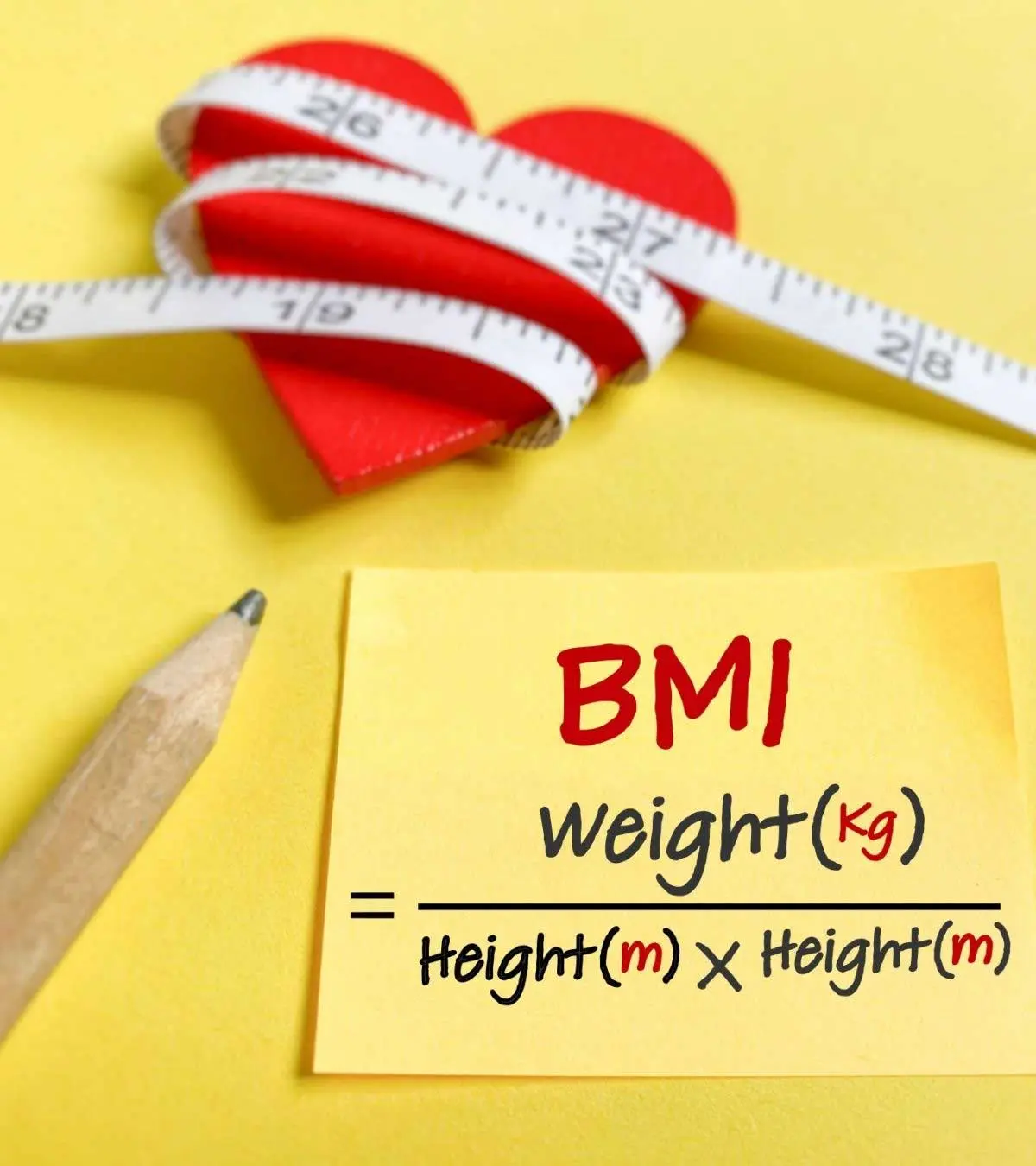BMI Calculator For Kids & Teens

Image: Shutterstock

Image: Shutterstock
BMI (body mass index) is a gross estimate of a person’s leanness or fatness based on their height and weight. It does have limitations, though, and should be used as only part of a patient’s overall health assessment. In other words, having an elevated BMI does not necessarily mean that you are not healthy, and having a normal BMI doesn’t necessarily mean that you are healthy (1).
In adults aged 20 and older, BMI is based on the standard weight status categories, which are the same for both men and women of all ages and body types.
The standard weight status and BMI ranges for adults according to the World Health Organization (WHO) are (2):
| BMI | Weight Status |
|---|---|
| Below 18.5 | Underweight |
| 18.5 – 24.9 | Normal/Healthy weight |
| 25 – 29.9 | Overweight |
| 30 – 39.9 | Obesity |
| Above 40 | Morbid |
In children and teens, BMI is based on age and sex, thus referred to as BMI for age. A high composition of body fat in children can lead to weight-related issues and other disorders. Being underweight is also bad as the body is devoid of nutrients, leading to health risks.
The BMI ranges for children and teens of ages two to 20, according to the US Centers for Disease Control and Prevention (CDC) are (3):
| BMI (percentile range) | Weight Status |
|---|---|
| Less than 5 | Underweight |
| 5 – 85 | Normal/Healthy weight |
| 85 – 95 | Overweight |
| Equal to/greater than 95 | Obesity |
BMI is calculated in the same way for both adults and children. Belgian mathematician Adolphe Quetelet devised the formula in 1830 (4). It is expressed in kg/m 2 universally. But, if imperial units (pounds and inches) are considered, then you require an additional conversion factor.
Let us understand both the calculation ways – Metric formula and the English Imperial formula (2).
Calculating BMI in metric units:
Step 1 – Multiply your height (in meters) by itself. Make sure you convert any measurements in centimeters to meters by dividing it by 100.
Step 2 – Divide your weight in kilograms by the step one value.
This example will help you understand better:
Consider your height as 180cm and weight as 75kg
Convert centimeters into meters – 180÷100 = 1.8m
BMI = 75 ÷ (1.8 × 1.8) = 75 × 3.24
Therefore, BMI = 23.15.
Calculating BMI in imperial units:
BMI = Weight (lb) ÷ height 2 (in 2 ) × 703
Step 1 – Multiply your height in inches by itself.
Step 2 – Divide your weight in pounds by the step one value.
Step 3 – Multiply the step two value by 703.
This example will help you understand better:
Consider your height as 5 feet 11 inches and weight as 155 pounds.
Convert height into inches. One foot = 12 inches, therefore multiply 5 feet by 12 and add 11 inches to it. Therefore, your height in inches is ((5 x 12) + 11 =)) 71.
BMI = (155 ÷ (71 × 71)) × 703 = (155 ÷ 5041) × 703
BMI = 0.030747867 × 703
Therefore, BMI = 21.62.
Error: Number of questions and answers should be the same.
Remember, BMI is one of the many ways to assess weight but not the sole method. If you have any doubts or concerns regarding your child’s BMI, speak with your nutritionist or doctor before undergoing a new diet or fitness routine.
Join the conversation and become a part of our nurturing community! Share your stories, experiences, and insights to connect with fellow parents.











